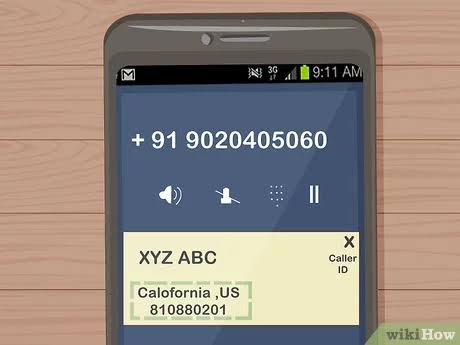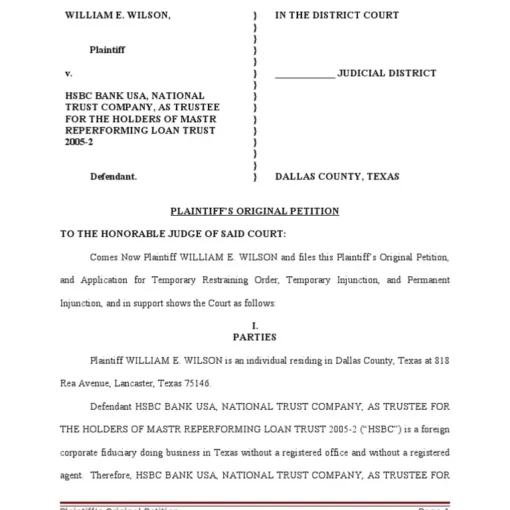In today’s complex legal landscape, the question of using a different last name without formal change arises frequently. While it’s generally not illegal, exceptions exist, such as fraudulent intent and regulatory requirements. Understanding the nuances is crucial for navigating personal, professional, and legal implications. Let’s explore the intricacies of this topic to grasp its significance in various contexts.
General Rule: Is It Illegal To Use Different Last Name Without Legally Changing It?
In most jurisdictions, it is not inherently illegal to use a different last name without legally changing it, but there are nuances and potential legal implications to consider. Let’s delve into the general rule in-depth.
1. Legal Name vs. Common Usage: Your legal name is the one recorded on official documents such as your birth certificate, passport, and driver’s license. However, people often use variations or nicknames in everyday life without formally changing their name.
2. Social and Professional Implications: Using a different last name in social or professional settings without legal change can lead to confusion, especially regarding identity verification, official records, and financial transactions. For example, discrepancies between the name on a credit card and an ID can raise concerns.
3. Name Changes and Legal Processes: To officially change your last name, you typically need to follow specific legal procedures, which vary by jurisdiction but commonly involve submitting a petition to the court, providing reasons for the change, publishing a notice in a local newspaper, and obtaining a court order.
4. Intent and Fraud: The legality of using a different last name without formal change often depends on intent. If the intention is to deceive or commit fraud, such as avoiding legal obligations or hiding from authorities, it can be illegal and punishable by law. However, if there’s no fraudulent intent and the name change is for personal or cultural reasons, it’s generally not illegal.
5. Common Law Traditions: Some legal systems recognize common law name changes, where consistent and widespread usage of a different name over time can establish its validity without formal court approval. However, common law name changes may not be universally accepted, especially in official or legal contexts.
6. Practical Considerations: While it may not be illegal per se, using a different last name without legal change can create practical challenges, such as difficulties in proving identity, accessing government services, or asserting rights in legal proceedings. It can also affect inheritance rights, property ownership, and parental rights in family matters.
7. Legal Protections and Rights: In some cases, individuals may choose to use a different last name due to marriage, divorce, adoption, or gender transition. Laws in many jurisdictions provide certain rights and protections to individuals who have undergone these life events, allowing them to use a different last name without formal legal change.
In conclusion, while it’s generally not illegal to use a different last name without legally changing it, there are important legal, social, and practical considerations to take into account. Intent, context, and the specific circumstances surrounding the name change can influence its legality and potential consequences. It’s advisable to consult legal counsel or relevant authorities for guidance on navigating name changes and ensuring compliance with applicable laws and regulations.
Exception: Is It Illegal To Use Different Last Name Without Legally Changing It?
While it’s generally not illegal to use a different last name without legally changing it, there are exceptions to this general rule. Let’s explore some key exceptions in-depth:
1. Fraudulent Intent and Misrepresentation:
– Using a different last name with the intent to deceive or commit fraud can render the action illegal. This includes scenarios where individuals adopt a different last name to evade legal obligations, conceal criminal activities, or defraud others.
– For example, if someone obtains credit or engages in financial transactions under a false last name to avoid debt collection or mislead creditors, it constitutes fraudulent behavior and may lead to legal consequences.
– Similarly, assuming a different last name to conceal a criminal record or evade law enforcement can result in charges of obstruction of justice, identity theft, or providing false information to authorities.
– Courts and law enforcement agencies take a dim view of activities aimed at misleading or defrauding others through the use of false identities or names. Such actions not only undermine trust in the legal system but also harm innocent individuals and businesses.
2. Regulatory Compliance and Documentation Requirements:
– Certain situations require individuals to use their legal name or provide accurate identification, particularly in regulated industries or government-related activities.
– For instance, in banking and financial services, stringent regulations mandate the verification of customers’ identities to prevent money laundering, terrorism financing, and other illicit activities. Using a different last name without proper documentation may violate these regulations and lead to account closures or legal penalties.
– Similarly, when applying for government benefits, immigration status, or professional licenses, individuals must provide accurate information, including their legal name. Failure to do so can result in the rejection of applications, loss of benefits, or even deportation in the case of immigration matters.
– Moreover, employers often require employees to use their legal name for payroll, tax reporting, and background checks. Using a different last name without proper documentation can lead to administrative complications and potential legal liabilities for both the employee and employer.
3. Professional Licensing and Certification:
– In professions where licensure or certification is required, individuals must often use their legal name for official documentation and registration purposes. This requirement ensures accountability, maintains professional standards, and protects the public interest.
– For example, doctors, lawyers, engineers, and accountants typically need to obtain professional licenses to practice legally. These licenses are issued under the individual’s legal name and serve as proof of qualification and competence in their respective fields.
– Using a different last name without proper documentation or authorization can raise concerns about identity verification, professional ethics, and compliance with regulatory requirements. It may result in disciplinary action by licensing boards, suspension of professional privileges, or revocation of licenses.
– Additionally, in regulated industries such as healthcare and finance, professionals are often subject to background checks and screening processes as part of the licensing or employment process. Any discrepancies or inconsistencies in the information provided, including the use of different last names, can trigger further investigation and scrutiny.
4. International Travel and Immigration:
– When traveling internationally or immigrating to a different country, individuals must use their legal name as it appears on their passport and other travel documents. Failure to do so can lead to complications, delays, and even denial of entry at immigration checkpoints.
– Passports serve as primary identification and travel documents, and they must accurately reflect the individual’s legal name to ensure proper identification and security screening. Using a different last name without legal authorization can raise suspicions and trigger additional scrutiny by immigration officials.
– Furthermore, visa applications and immigration processes typically require applicants to provide detailed information about their identity, including their legal name, date of birth, and other personal details. Any inconsistencies or discrepancies in the information provided can result in the rejection of visa applications or refusal of entry into the destination country.
– Additionally, international travel involves interactions with various authorities, including customs and border protection agencies, where individuals may be required to present identification and explain any discrepancies or irregularities in their travel documents. Using a different last name without legal justification can lead to suspicion of fraudulent activity and may result in further investigation or denial of entry.
In summary, while using a different last name without legally changing it may not always be illegal, there are exceptions where it can have legal implications. Professional licensing requirements and international travel and immigration regulations mandate the use of legal names for official documentation and identity verification purposes. Failure to comply with these requirements can result in disciplinary actions, professional sanctions, travel disruptions, and legal consequences. It’s essential for individuals to understand and adhere to the relevant laws and regulations governing their specific circumstances.
Frequently Asked Questions
1. Is it illegal to use a different last name without legally changing it?
– Generally, it is not inherently illegal to use a different last name without legally changing it. However, there are exceptions, such as when the intent is fraudulent or when specific legal or regulatory requirements mandate the use of the legal name.
2. Can I use a different last name for everyday purposes, like on social media or in personal interactions?
– Yes, individuals often use variations or nicknames in informal settings without formally changing their last name. As long as there is no fraudulent intent and the usage does not violate any laws or regulations, using a different last name in everyday life is typically permissible.
3. What are the potential consequences of using a different last name without legal change?
– While it may not be illegal per se, using a different last name without legal change can lead to practical challenges and legal implications. These may include difficulties in identity verification, official documentation, financial transactions, professional licensing, and international travel.
4. How can I legally change my last name if I want to use a different one permanently?
– To legally change your last name, you typically need to follow specific procedures determined by your jurisdiction. These procedures often involve petitioning the court, providing reasons for the name change, publishing a notice in a local newspaper, and obtaining a court order approving the change.
5. Are there any exceptions to the general rule that using a different last name without legal change is not illegal?
– Yes, there are exceptions to this general rule. For example, using a different last name with fraudulent intent or to commit misrepresentation can be illegal. Additionally, certain industries or activities may require the use of legal names for regulatory compliance, professional licensing, or international travel purposes.
Last updated on: April 29, 2024




